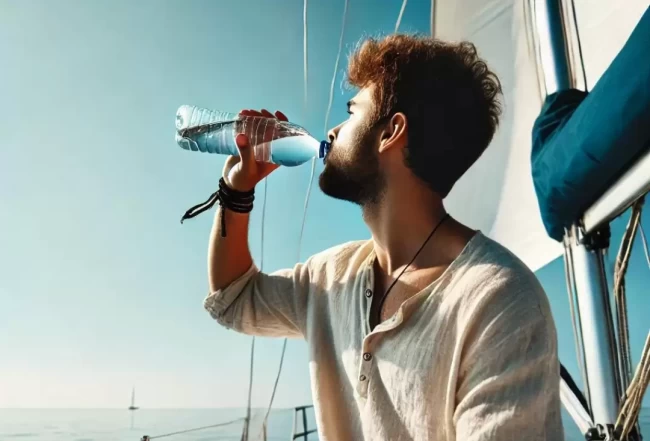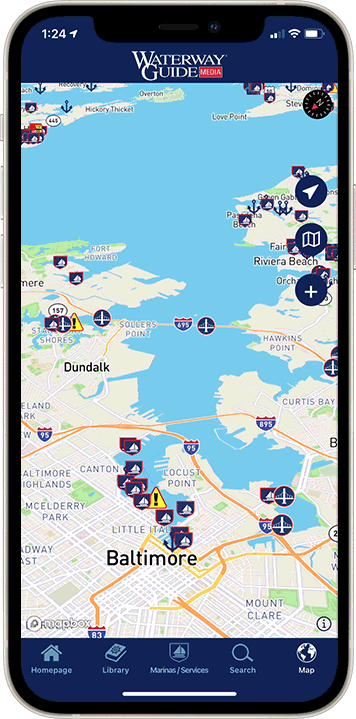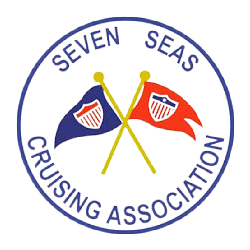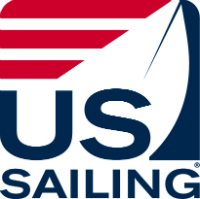Explore Our Latest News & Articles
With the recent heatwave across the U.S., boaters are taking to the waterways for relief and recreation. However, intense heat requires extra precautions to ensure a safe and enjoyable experience on the water. Here are some essential tips to help you stay cool and hydrated during your summer boating adventures.

Hydration is Key
When it comes to staying cool and healthy during the hot summer months, hydration is paramount. Dehydration can set in quickly, especially in the sun and heat. Remember these key points:
- Always bring an ample supply of water aboard. It's easy to underestimate how much water you'll need, so pack more than you think is necessary.
- Invest in a quality water cooler or insulated water bottles to keep your drinks cold throughout the day.
- Set regular reminders to drink water, even if you don't feel thirsty. Staying ahead of your body's hydration needs is crucial.
- Limit your alcohol and caffeine intake, as they can contribute to dehydration.
Create Shade Onboard
Having adequate shade on your boat can make a significant difference in staying cool and protected from the sun's harsh rays. Consider the following options:
- Install a Bimini top or attach a sunshade to your boat to provide a shaded area.
- If your boat doesn't have built-in shade options, consider bringing portable umbrellas or pop-up canopies to create shade on the deck.
- Don't forget to apply sunscreen to exposed skin, even when under shade, to prevent sunburn.

Dress Appropriately
Choosing the right clothing can help you stay comfortable and cool on the water. Here are some clothing tips for boaters:
- Opt for lightweight, breathable, and light-colored clothing to reflect the sunlight.
- Wear wide-brimmed hats or caps with neck protection to shield your face and neck from direct sun exposure.
- Consider wearing moisture-wicking apparel that can keep sweat away from your skin, allowing you to stay cooler.
Plan Wisely
Being strategic about the timing and duration of your boating adventures can make a significant difference:
- Schedule your trips during the cooler parts of the day, such as early mornings or late afternoons, when the sun's intensity is less harsh.
- Limit your time in direct sunlight during peak hours (typically between 10 a.m. and 4 p.m.).
- Plan for breaks in shaded areas or marinas to cool down if you're out during the hottest times of the day.
Look Out For These Warning Signs
It's crucial to be vigilant about the warning signs of dehydration and overheating. These conditions can be dangerous if left unattended. Here's what to watch out for:
Signs of Dehydration
Dehydration occurs when your body loses more fluids than it takes in, leading to an imbalance that can quickly escalate. Look out for these signs of dehydration in yourself and your fellow boaters:
- Thirst: Feeling thirsty is the most apparent indicator that you need to drink more water. However, relying solely on thirst as a cue to drink might not be sufficient, as thirst often lags behind your actual fluid needs.
- Dry Mouth and Lips: Dryness in the mouth and cracked lips can indicate dehydration.
- Fatigue and Weakness: Dehydration can lead to feelings of fatigue, weakness, and difficulty concentrating.
- Dizziness or Lightheadedness: Feeling dizzy or lightheaded can be a sign of mild to moderate dehydration.
- Dark-Colored Urine: Urine that is dark yellow or amber in color is a sign that you need to increase your fluid intake.
If you or anyone onboard experiences these symptoms, it's essential to take immediate action. Move to a shaded area, sip water slowly, and rest until you feel better. Severe dehydration requires medical attention, so seek help if the symptoms persist or worsen.

Signs of Overheating and Heat Exhaustion
Overheating can lead to heat exhaustion, a condition characterized by the body's inability to cool down adequately. If not addressed promptly, heat exhaustion can progress to heatstroke, a life-threatening emergency. Watch out for these signs of overheating and heat exhaustion:
- Profuse Sweating: While sweating is the body's natural cooling mechanism, excessive sweating can deplete your body's fluids and electrolytes.
- Rapid Pulse and Breathing: An elevated heart rate and rapid breathing can indicate that your body is struggling to cool down.
- Nausea and Vomiting: Feeling nauseous or vomiting can be signs of heat exhaustion.
- Headache: Persistent headaches can result from dehydration and overheating.
- Muscle Cramps: Heat-induced muscle cramps can occur due to electrolyte imbalances from sweating.
- Cool, Moist Skin: Contrary to what you might expect, heat exhaustion can cause cool, clammy, or moist skin due to the body redirecting blood flow to vital organs.
If you or someone onboard shows signs of heat exhaustion, take immediate action:
- Move to a shaded, cooler area.
- Loosen tight clothing and apply cool, wet cloths to the skin.
- Sip on water or an electrolyte-rich beverage.
- Seek medical attention if the symptoms persist or worsen.
Remember that prevention is always the best strategy. By staying well-hydrated, seeking shade, and taking breaks in cooler areas, you can significantly reduce the risk of dehydration and overheating during your boating adventures in the hot summer months. Always prioritize safety and be mindful of the well-being of everyone on board.
With careful planning and smart choices, you can beat the heat and make the most of your summer boating adventures!












